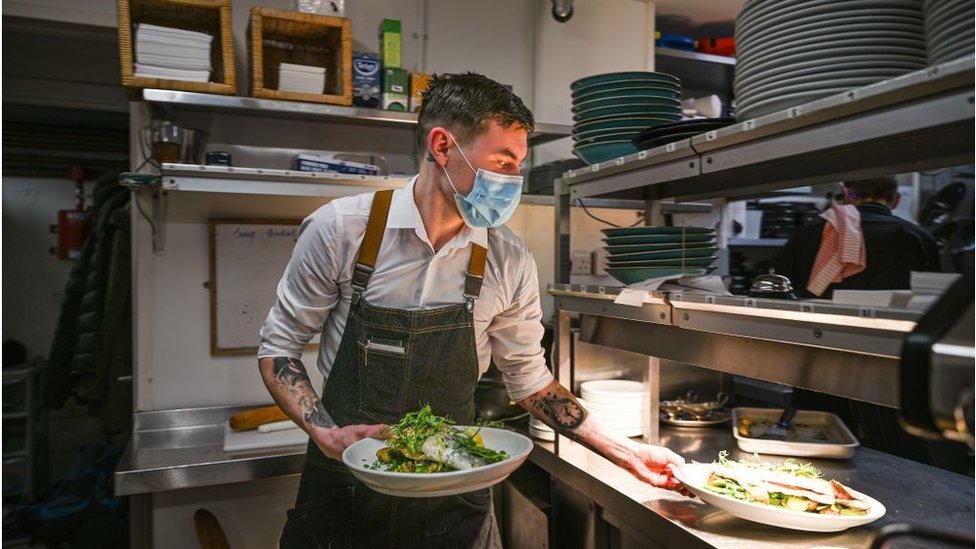Coronavirus: Disabled job hunters 'should not be forgotten'
- Published

Disabled people are more than twice as likely to be unemployed than those without a disability and charity Scope fears that could get worse
Although lockdown restrictions are beginning to ease, its effects, particularly on employment could be felt for years to come.
The number of workers on UK payrolls dropped by more than 600,000 between March and May, meaning more people looking for work, while the number of job vacancies fell by 342,000.
And for people who have disabilities, finding a job can already be tough.
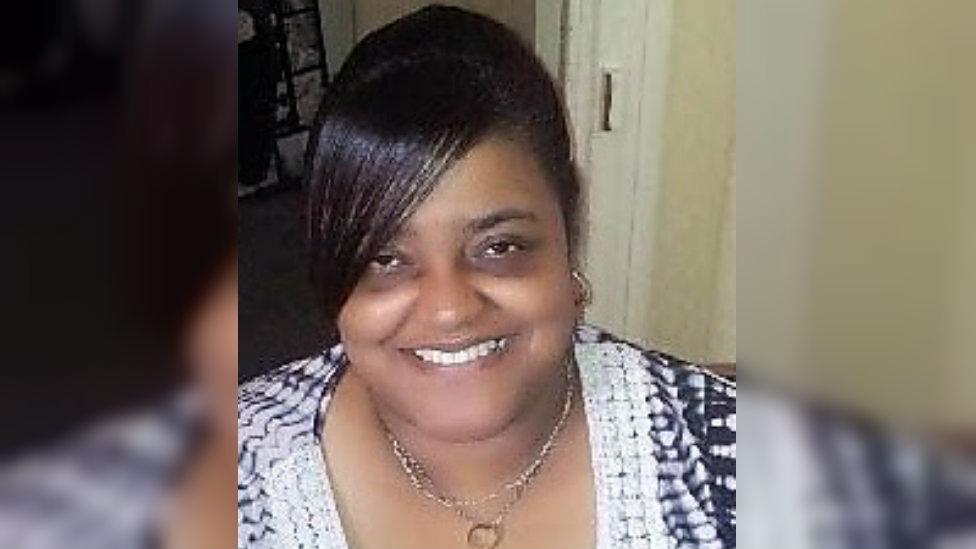
Sherron Chambers worked as a nurse and midwife for 27 years
Sherron Chambers, 52, from Handsworth, Birmingham, worked as a nurse and midwife for 27 years.
After being diagnosed with multiple sclerosis (MS), external in 2002, she was able to keep working until 2010, before moving into desk-based jobs until 2015, when she said a lack of support made it difficult to continue.
"People would phone up, not reading my CV that says I need a desk-based role, but they were looking at my qualifications," Ms Chambers said.
"They automatically assume I want to work in a hospital.
"As soon as I say MS, the call went dead."
She said job hunting during the pandemic had been "difficult", but has now secured three interviews while being supported by the BID Services charity, who she was referred to by the job centre.
"We have weekly zoom meetings [with BID], talk through our problems and talk about what we need," she said.
"They help us with our Curriculum Vitaes, give advice regarding literature, podcasts and YouTube and do mock interviews."
Government figures show before the coronavirus outbreak 4.4 million disabled people were in employment, but were more than twice as likely to be unemployed as non-disabled people, external, according to disability charity Scope.
It said it feared the so-called disability employment gap could get worse.
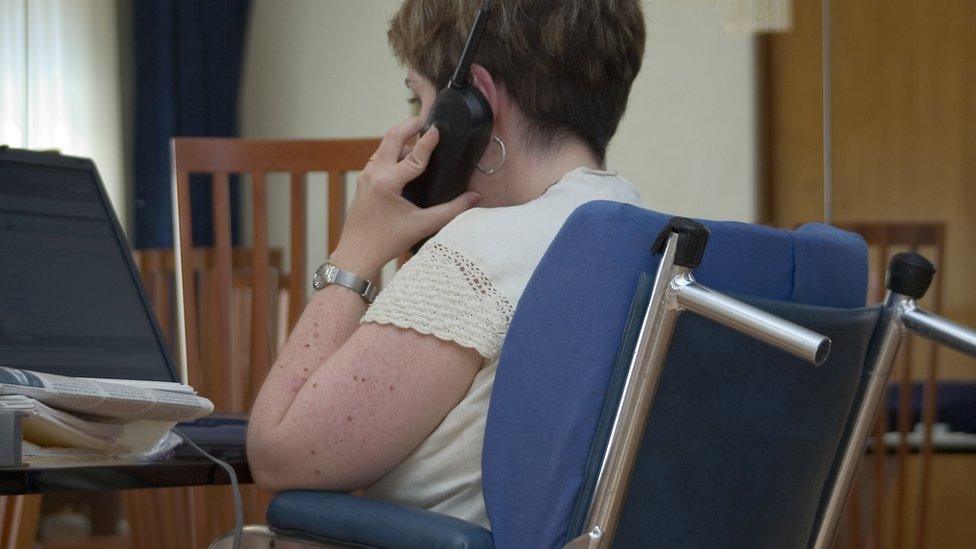
UK unemployment is estimated to reach up to 11.7%, even without a second wave of coronavirus
Following the Chancellor's announcement of measures to protect jobs, Scope said it was "disappointing" Rishi Sunak did not directly address the needs of disabled people
"Disabled people have been amongst the hardest hit during the coronavirus crisis and life looks set to get even harder, with a looming recession and rising unemployment," said Head of Policy and Campaigns, Ceri Smith.
The Organisation for Economic Co-operation and Development estimates UK unemployment will reach "record highs" of up to 11.7% by the end of 2020, external.
"Many disabled people are already locked out of work or struggle to stay in work because of inflexible working practices," Ms Smith said.
"Government must not forget disabled people. The initiatives announced need to work and be accessible for disabled people."
Charity BID Services, which supports disabled people in Birmingham, said with job centres and libraries closed during the pandemic, and some support systems unavailable, people with disabilities have faced multiple barriers in finding employment, education or training.
Its support project called Pure, delivered with Birmingham City Council and part-funded by the European Social Fund, has so far helped 150 people seeking employment.
One of them is Robert Barton, from Birmingham, who previously worked as a primary school teacher.
In 2014 he suffered a traumatic brain injury when he was hit by falling rocks while walking with a friend on holiday in Corsica.
As well as losing hearing in one ear and suffering issues with his speech, he has prosopagnosia, external, or face blindness, and can no longer recognise people's faces, not even those of his parents or girlfriend.
He has been volunteering since he had to give up his job, currently as a tutor, although this has also been put on hold during lockdown.
"I love teaching and I was really good at it, I still am, I just can't recognise the children," he said.
"I volunteer with small groups of two, sometimes three, pupils and when I am with them, I can keep track on who is who."
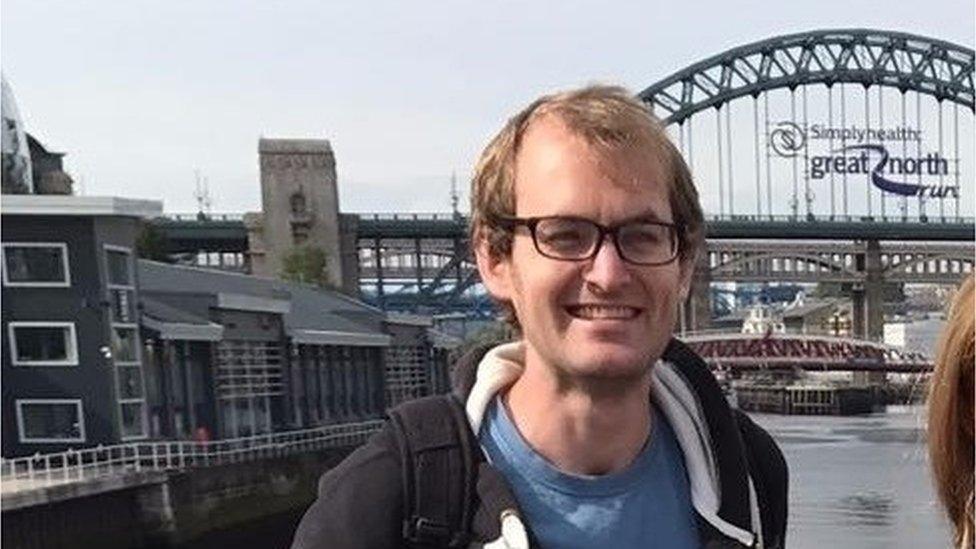
Robert Barton's teaching career was affected after he suffered a traumatic brain injury
He has been looking for paid employment and has applied for work as a teaching assistant and has also been looking at roles in waste management.
But the pandemic has had an unexpected benefit for Robert while job hunting.
"I have dysphasia, external in my speech and find it quite hard sometimes to find the appropriate words to use," he said.
"I find it useful having an interview through the computer because, in the background off screen, I can have key words written up and make sure to say them."
He also paid tribute to the BID charity for helped him find and apply for jobs, although he has so far been unsuccessful.
"I'm not great at doing things quickly, everything takes me longer now," he said.
"We found these jobs and as soon as we had finished our meeting I started applying."
Despite the challenges, he said he was positive about his future.
"I feel it is the right time for me to find a job. I can do this. Unfortunately the pandemic got in the way, but I am very optimistic.
"It will be more difficult for me to find a job, but I very much feel I can."

Follow BBC West Midlands on Facebook, external, on Twitter, external, and sign up for local news updates direct to your phone, external.
- Published9 July 2020
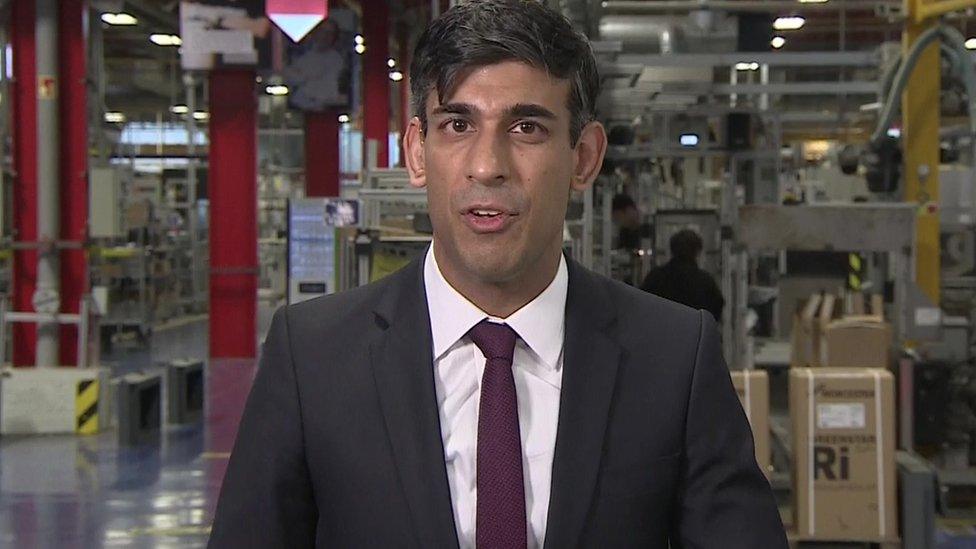
- Published8 July 2020
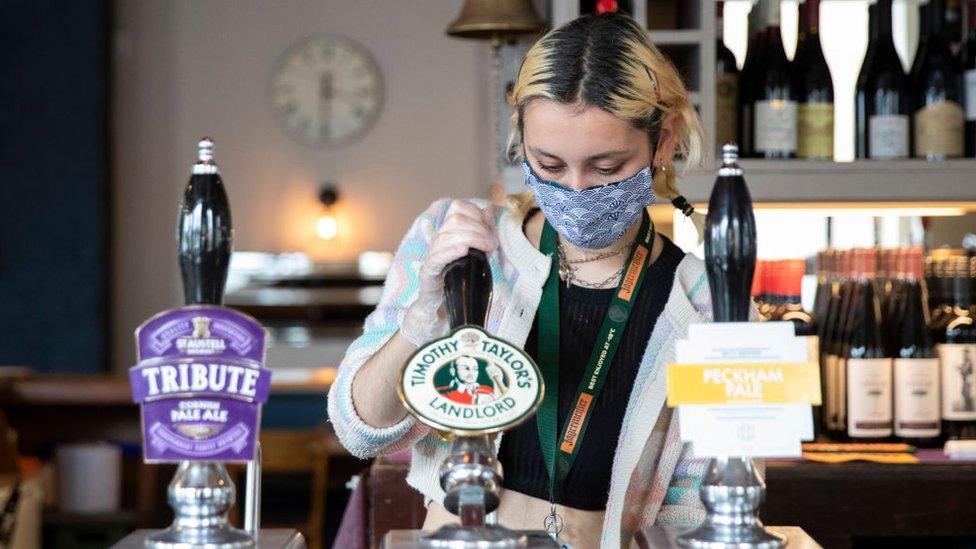
- Published8 July 2020
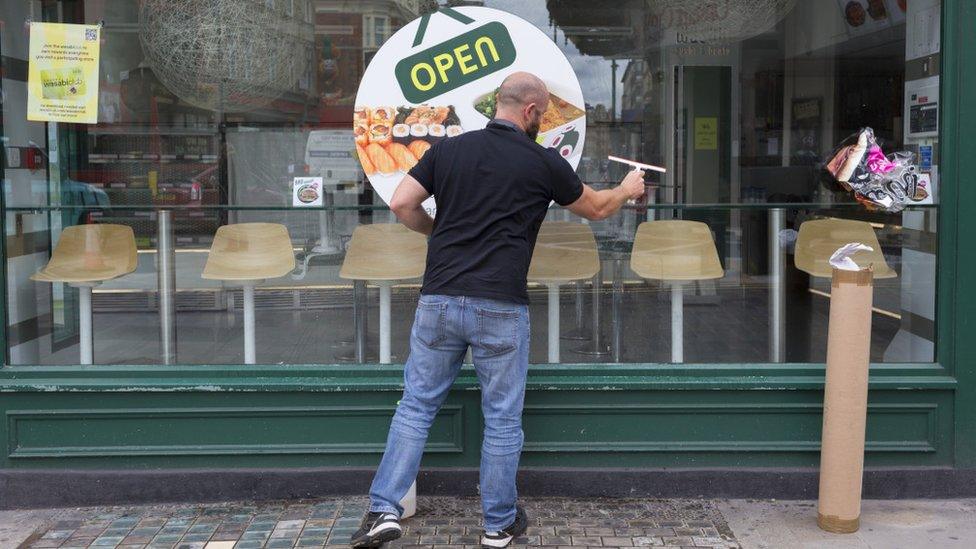
- Published16 June 2020
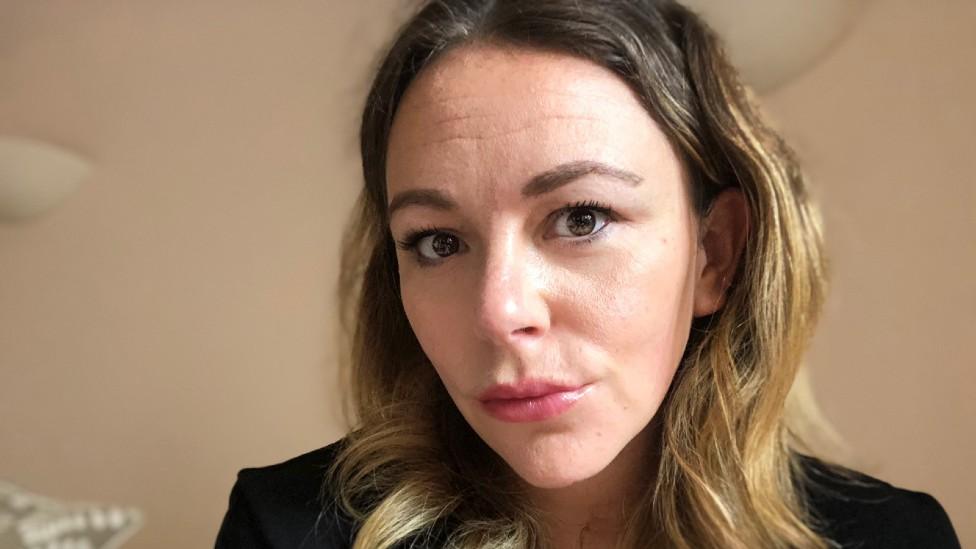
- Published26 March

- Published16 June 2020
